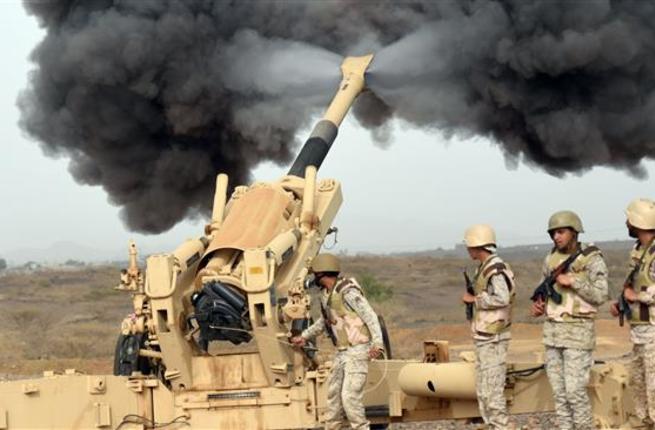In the past few weeks, Germany closed an arms deal with Saudi Arabia, reversing its stance on selling weapons to countries involved with the conflict in Yemen. The decision in January 2018 by Chancellor Angela Merkel that Germany would halt all arms sales to countries involved in the conflict in Yemen, such as Saudi Arabia, was a watershed moment, because the violence in Yemen has drawn international attention. The conflict has been designated a humanitarian crisis, with thousands of civilians perishing as a direct result of the warfare, and an estimated eight million civilians have been displaced and are at risk of famine. In 2017, the United Nations Group of Eminent Experts on Yemen reported that “there is little evidence of any attempt by parties to the conflict to minimize civilian casualties.”
The European Union (EU) has a Common Position on Arm Sales that details criteria that Member States should adhere to when selling weapons. The Common Position urges Member States from trading weapons with countries that use them to commit war crimes or to violate international human rights laws. The EU’s Common Position and its subsequent referendums were approved by an overwhelming majority within the EU Parliament, however they are not enforceable. Whether EU Member States follow regulation is discretionary.
As one of the world’s largest arms traders, Germany’s decision earlier this year to refrain from trading weapons with countries engaged in the war in Yemen was a positive action that reinforced Germany’s outward commitment to human rights. For the better part of the year, Germany was an example of a country that prioritized human rights over arms trade profits. One of the simplest ways for the international community to minimize the negative effects of the war in Yemen is to cut off Saudi Arabia’s access to arms and military equipment. Yet while many countries claim to promote human rights, they continue to sell arms to Saudi Arabia. Up until a few weeks ago, Germany was one of the few countries that backed up its human rights rhetoric with actions. The fact that Germany has reversed course and is now selling artillery positioning systems to Saudi Arabia is thus a disheartening sign.
The Saudi government has also recently been attempting to end a diplomatic feud with Canada. Saudi Arabia, perhaps emboldened by its ability to re-negotiate with the German government over arms, has stipulated that Canada–another country that has emphasized human rights–must issue a formal apology for its recent tweet in order to re-establish diplomatic relations. In August, after Saudi authorities arrested a number of prominent women rights activists, the Canadian foreign ministry tweeted: “Canada is gravely concerned about additional arrests of civil society and women’s rights activists in #SaudiArabia, including Samar Badawi. We urge the Saudi authorities to immediately release them and all other peaceful #humanrights activists.”
In response, the Saudi government recalled its ambassador, banned Canada’s envoy from returning, and placed restrictions on trade. This reaction by the Saudi government broke diplomatic norms and drew broad criticism of the Saudi Crown Prince Mohammed bin Salman’s temperament as a statesman.
Canada, especially under the Trudeau administration, seems to be guided by a sense of principled liberal internationalism with an emphasis on human rights. The tweet by the Canadian government is not a departure from Canada’s wider stance on global human rights, yet Saudi Arabia considered this action to be an “outrageous” show of disrespect. Saudi Foreign Minister Adel al-Jubeir said his country refuses to be lectured over human rights, and he demanded that Canada bow to Saudi pressure and retract its statement in order to end this dispute. But despite its principled stand in support of Saudi human rights activists, Canada, like Germany and most other wealthy, liberal, Western nations, sells arms to Saudi Arabia. Last year, Justin Trudeau greenlit a nearly 12bn USD arms deal with Saudi Arabia. Part of this sale entailed the delivery of more than 900 armored vehicles to Saudi Arabia which began in 2017.
Saudi Arabia is one of the world’s worst human rights abusers, yet it has bargaining power over Germany, Canada, and many other Western nations because it is a strategic ally in the fight against terrorism, and it is also a large market for weapons. Because of this, human rights sometimes get de-prioritized in favor of other issues, in particular the financial benefits of arms sales. The international community must make more than a rhetorical commitment to a pro-human rights agenda—it must also back it up with policy. Any contribution of weapons to Saudi Arabia may lead to repressive and violent actions against civilians both in Saudi Arabia and in Yemen. Canada, Germany, and any other country that claims to be against human rights violations, must not only unapologetically offer support to wrongfully imprisoned human rights activists, as Canada did, they must also halt all arm sales to the Saudi regime.
Rebecca Leussing is an Advocacy Intern at ADHRB





